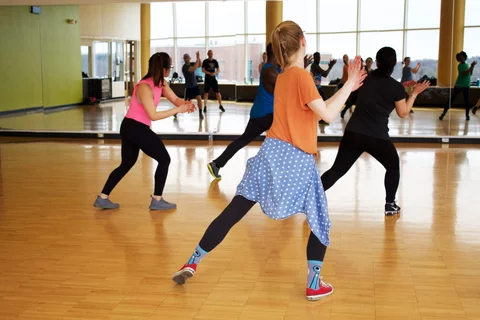Community-Based Lifestyle Interventions

Mission
Our goal is to pursue interventions that, first and foremost, utilize the local autistic community’s input to guide the development and implementation of interventions aimed at improving the lifestyle of autistic individuals and their families. By prioritizing creative educational delivery methods, we aim to promote whole-person growth and wellness.
Node Aims
AIM 1: Incorporate the six pillars of lifestyle wellness (nutrition, physical activity, sleep, avoiding substance use, stress management, social connectedness) into community-based interventions supporting whole person health for autistic individuals.
- 1-A: Support community-engaged and informed research on community-based interventions designed to intervene on one or more of the six pillars of lifestyle medicine.
AIM 2: Improve social connectedness by working with autistic self-advocates to help define and identify meaningful places, spaces, and people that are central to the autistic community.
- 2-A: Develop novel methods for engaging autistic self-advocates and researchers in community-based research targeting improving physical well-being for autistic individuals.
- 2-B: Describe various “communities” of interest for autistic individuals to engage in social connectedness.
AIM 3: Promote self-determination and self-advocacy by engaging autistic individuals in research conception, design, and/or evaluation.
- 3-A: Identify successful models whereby community-based organizations, research centers, and autistic individuals come together to collaborate on research that supports and promotes the health of autistic individuals.
- 3-B: Support the growth of community-engaged research in scholars, trainees, and early-career investigators who collaborate in or with the AIR-P.
AIM 4: Engage advocates, families and communities in changing the ways in which communities can support and uplift autistic individuals and their families.
- 4-A: Support expansion of research efforts that target interventions based in the communities in which autistic individuals and their families live, learn, work and play.
Research Agenda
Autistic individuals are at disproportionate risk for unhealthy weight across the lifespan. They represent just one of many communities with unique considerations when it comes to tailoring interventions designed to improve nutrition and physical activity. Additionally, restrictive eating behaviors, sensory issues, specialized diets, social and behavioral impairments, motor impairments, and family factors are key considerations in addressing barriers to optimal nutrition and physical activity in autistic individuals. Research priorities include developing interventions that promote social connectedness, building self-advocacy capacities, and engaging families and communities.
Node Leaders

